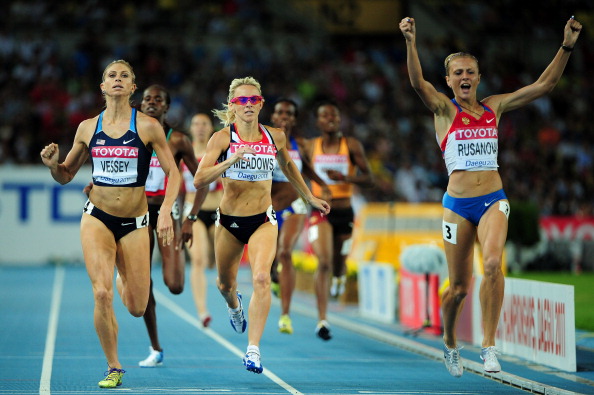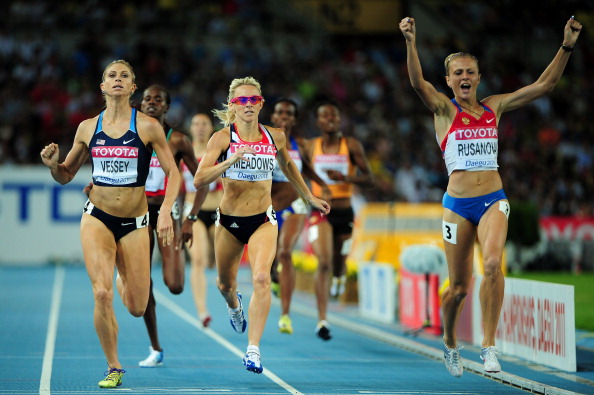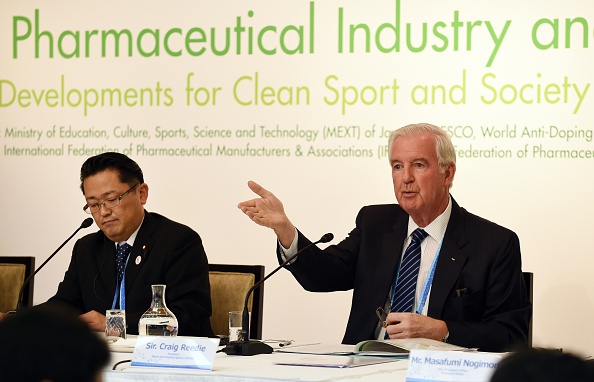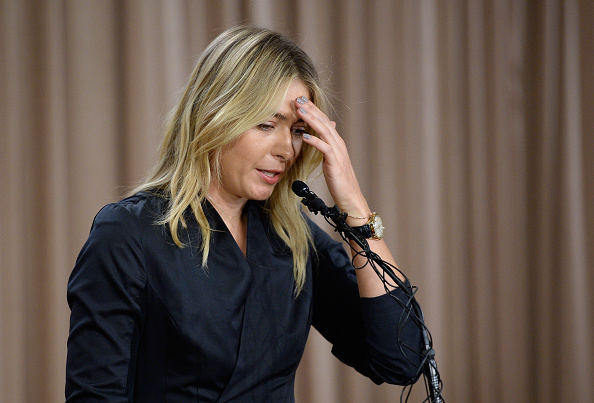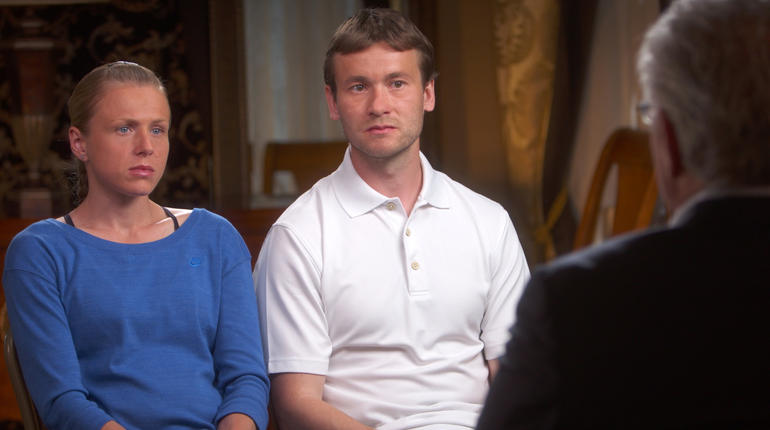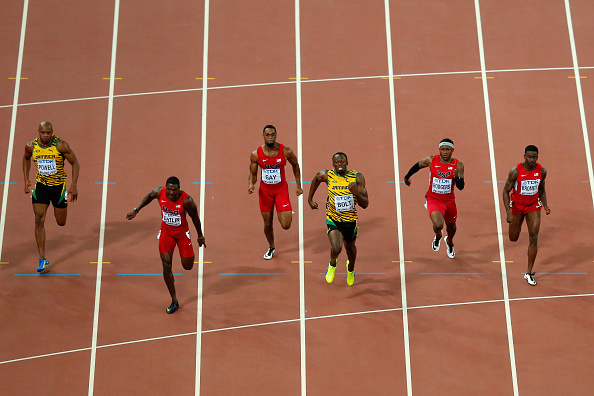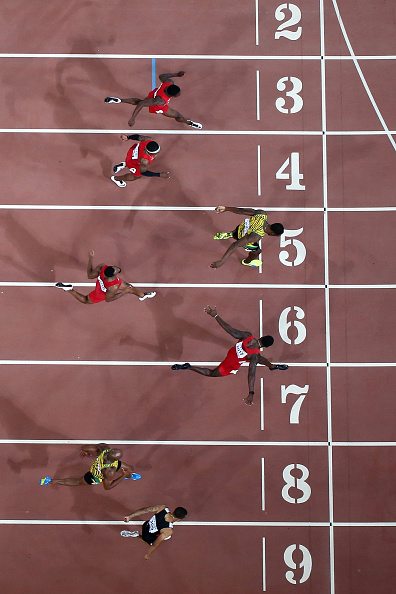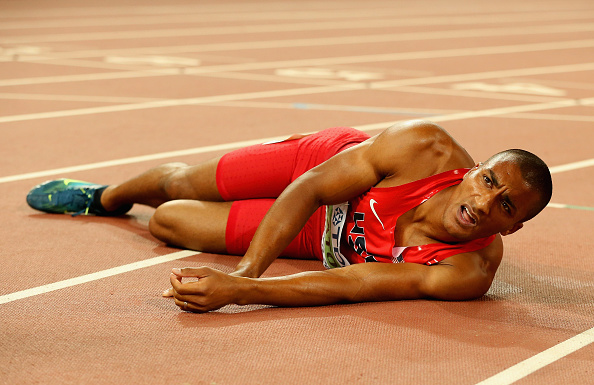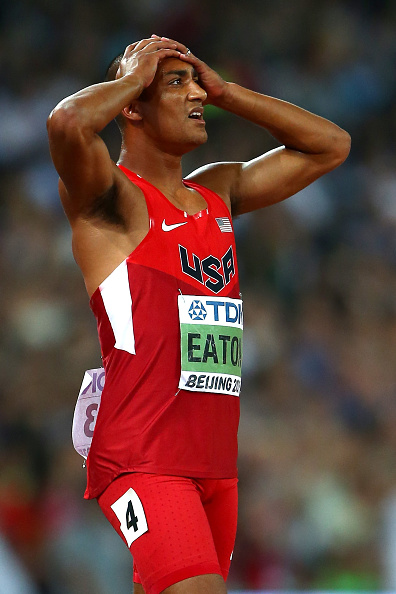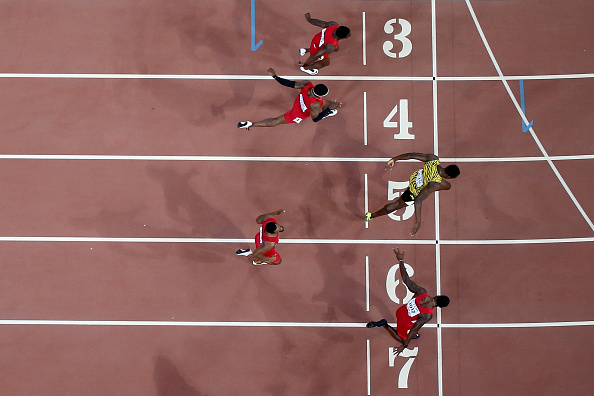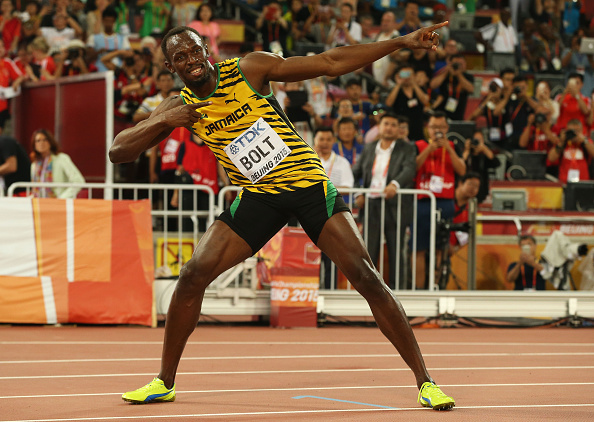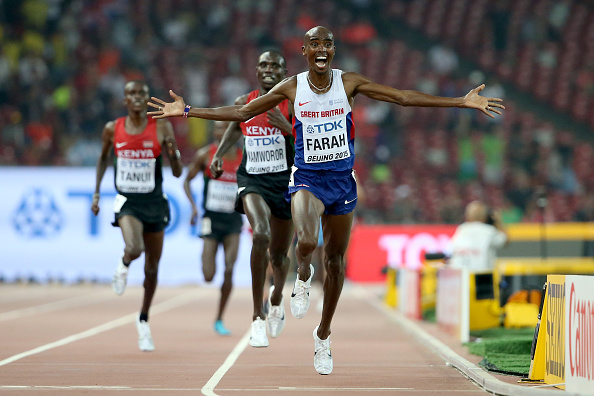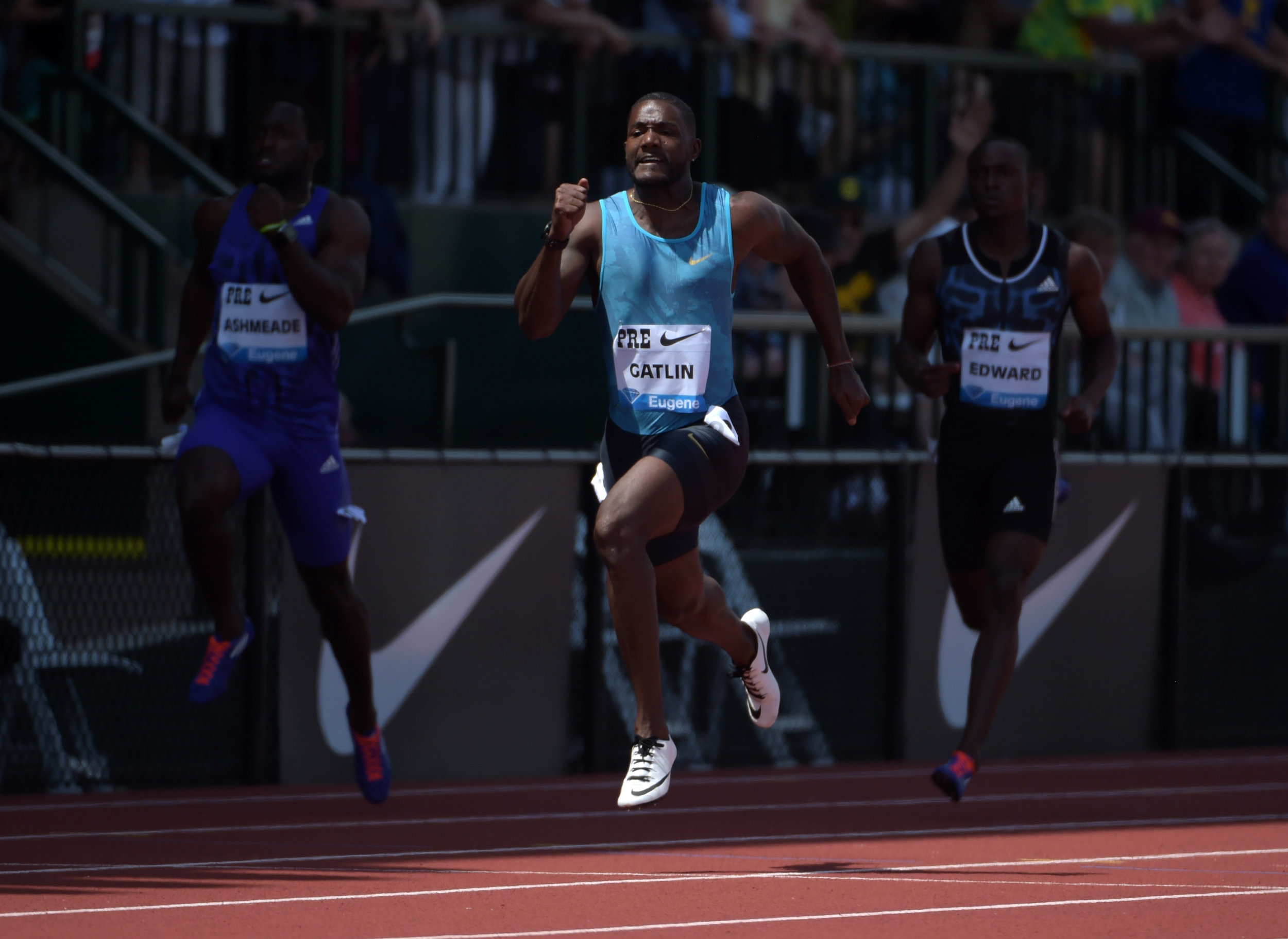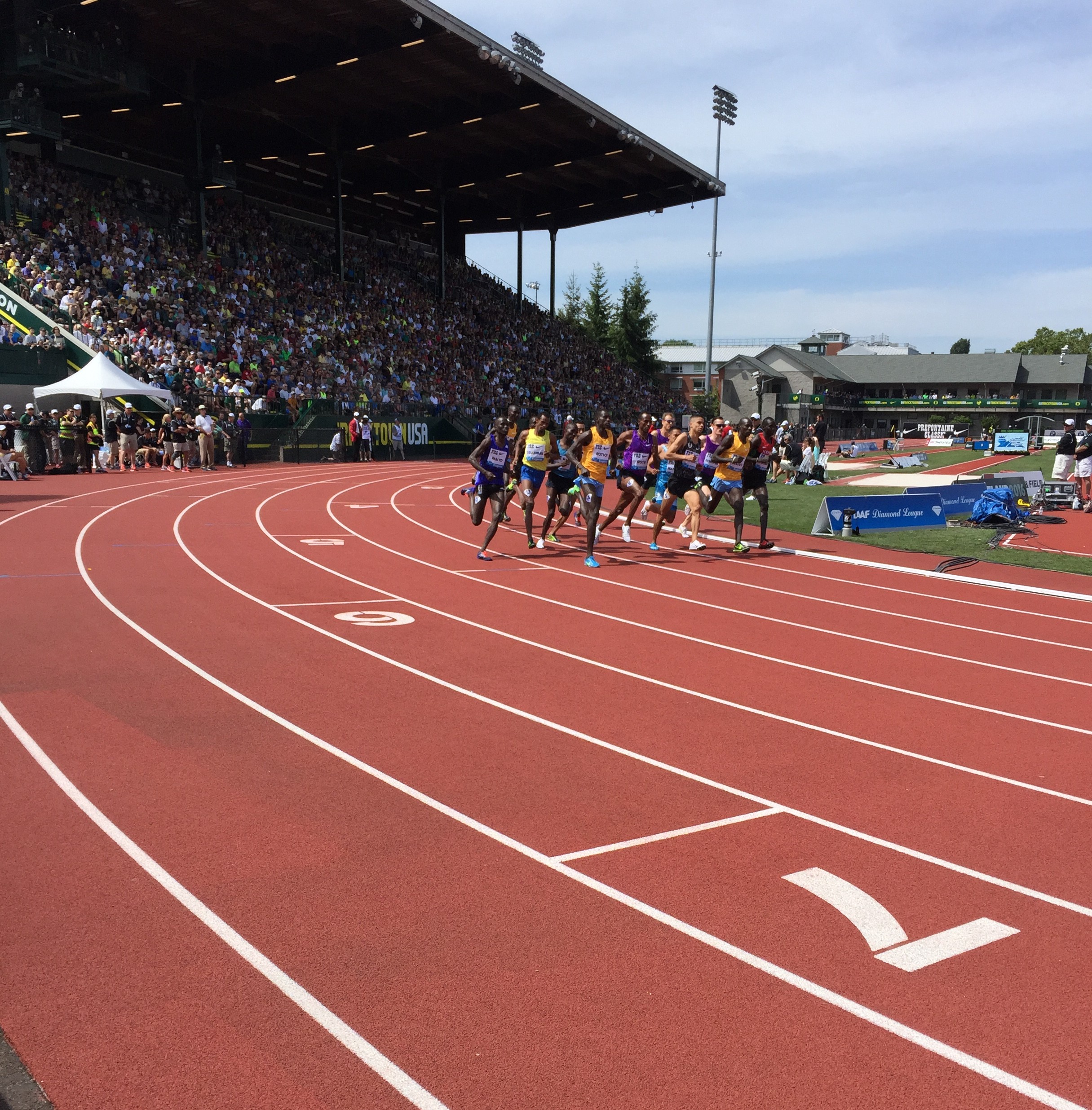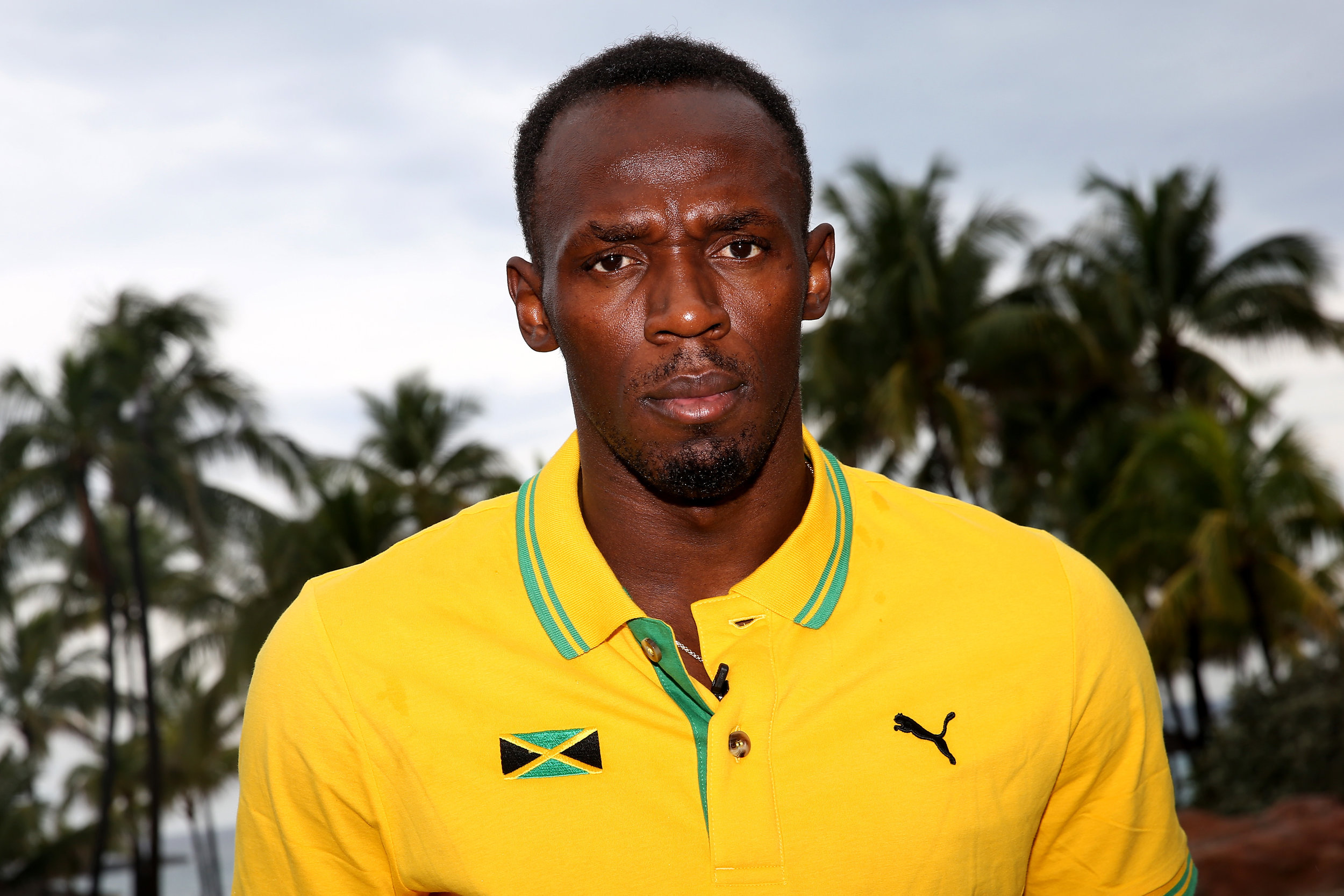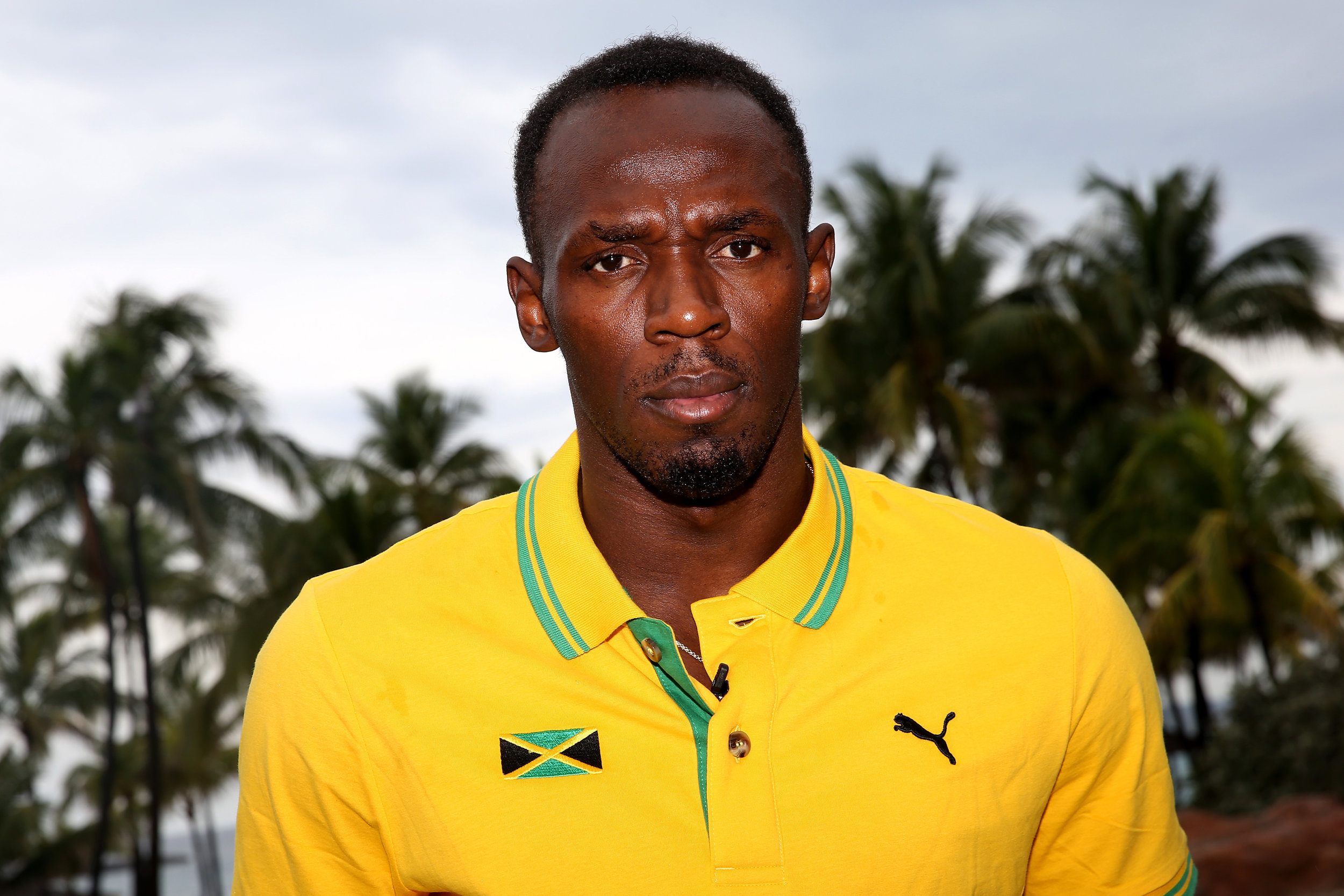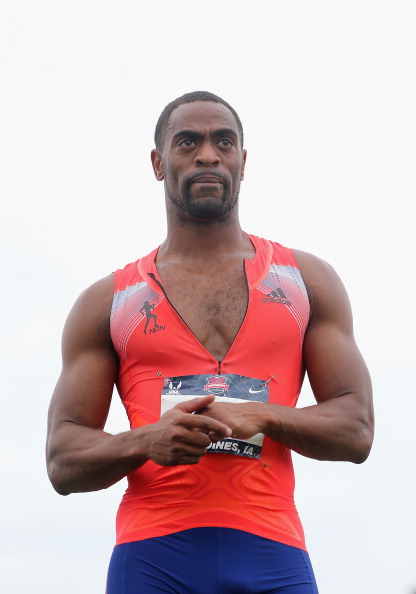MONACO — Once again, here was a pack of journalists circled around Usain Bolt. Here came the familiar sorts of wacky questions: Was he interested in doing bobsled like the Jamaican “Cool Runnings” team that went to the 1988 Winter Games? (No.) Could he see himself playing NFL football? (No.) And more.
Bolt, the self-proclaimed "legend," has said — many times — that he intends to retire after the 2017 International Assn. of Athletics Federations world championships in London. If so, the clutch gathered Friday around Bolt at the Fairmont Hotel, in advance of the evening’s IAAF awards gala, where he would — for the sixth time — take home the trophy as best male athlete, was both familiar and melancholy.
Track and field has a storied history that stretches back into the dawn of time. Even so, it is quite possible there has never been anyone quite like Usain Bolt. As Seb Coe, the IAAF president, said at Friday night's awards shoe, referring to Bolt's third Olympic sprint triple in Rio this past summer, "Usain Bolt dazzled us with his brilliance once more."
For his part, Bolt said, "I live for moments when I walk into the stadium and there's a loud roar."
Will such brilliance -- will anyone quite like him -- pass this way ever again? Will that roar ever be the same? Can it, without Bolt?
“If you accomplish your goals, there’s no reason to stay around,” Bolt observed Friday. “You got what you wanted. Let’s move on.”
It has been Bolt’s destiny to stand as the upside of the sport in an era in which so much has gone bad — the sport beset by, in particular, chronic doping and staggering allegations of corruption within the prior generation of the sport's top international governance circles. Indeed, the IAAF is due Saturday to convene a special assembly at which Coe, elected IAAF president in 2015, is pushing a wide-ranging reform plan.
To be blunt, track and field needs that reform.
It also needs more joy. It needs more Bolt, and the way he plays to and with the crowd, almost all of whom invariably have come to see one guy, and one guy only: him.
Asked Friday night what his next act could be, he said maybe TV, adding with a smile, "I look good in a suit."
Or maybe the big screen. "I definitely think," he added, "that I would be a great action star. The next Jason Bourne.
"I'm not," he said, "a Bond guy," and the crowd ate it all up.
Too bad. Bolt in a re-make of "The World is Not Enough," the 1999 Bond flick? Can someone take a meeting?
In the meantime, there's track and field, at least for one more season. And then? When Bolt steps away, who -- if anyone -- can take over his role as the sport's leading man?
Maybe the South African Wayde van Niekerk, winner in Rio of the men’s 400 in a stupendous world-record 43.03 seconds, who has trained with Bolt and observed Friday, “We are all just people wanting to achieve a dream out there.”
This, in essence, is what Bolt — along with Michael Phelps — brought the world: the idea that you not only should but can dream big and that big dreams can become real.
There are similarities and parallels but, of course, distinct diversion in what they have done and what they stand for.
For one, as Bolt said Friday, he absolutely, positively will not retire and then un-retire, like Phelps. This even though Bolt has those nine Olympic golds, and Carl Lewis has 10, nine gold and one silver, and would it really be all that hard for Bolt to take a little time off, then come back and run, say, the relays in Tokyo in 2020?
No way, Bolt said, declaring his longtime coach, Glen Mills, had warned him about just this sort of thing.
Mills, Bolt said, told him, “ ‘Do not retire and come back to the sport. Don’t ever do that. You have to make sure you’re [ready] to retire.’
“This is why,” Bolt said, “I’m taking it a year a time to make sure I’m ready when I’m ready,” adding, “For me, I think track and field is very difficult, you know what I mean? If you leave track, you put weight on, you pretty much do no running — to come back two years from that and compete, it’s not going to be the same.”
Phelps is living proof that hard work — super hard work, ragingly difficult — can make your dreams come true.
The difference between swimming and track, however, is elemental. For literally millions of people, swimming remains foreign. That is, they can’t swim. Often, they can’t possibly imagine how people move through water.
In contrast, virtually everyone has run. And so almost everyone on Planet Earth has felt at least a glimmer of what it must be like to be Bolt — to feel the wind on your face, the pain in your legs as you try for that top gear.
Bolt, though, doesn’t make it seem like work. He is emblematic of pure joy.
This was what the former International Olympic Committee president, Jacques Rogge, didn’t quite understand when Bolt burst onto the Olympic scene in Beijing in 2008, saying, "I understand the joy. He might have interpreted that in another way, but the way it was perceived was 'catch me if you can'. You don't do that. But he'll learn. He's still a young man."
Bolt turned 30 on August 21, the day before the close of the Rio Games.
There he gave us all more joy — not just the three golds, wrapping up that neat nine in all since Beijing, but the fantastic moment in which, during a men’s 200 semifinal, he and Canada's Andre de Grasse chatting and laughed it up as they crossed the finish line, just two dudes running faster than everyone else but looking for all the world like they were hanging out together at Starbucks.
And then the selfies with the fans -- all of whom were screaming like Usain was the 2016 version of John, Paul, George or Ringo.
Who in the sports world does that?
Bolt. Only Bolt.
“That’s who I am,” he said Friday afternoon, adding a moment later, “It’s just my personality. It just comes out. People really enjoy it. I can be myself.”
The thing is, Bolt, like Phelps, has worked like a dog to do what he has done. He acknowledged as much Friday in saying that he learned a hard lesson after the 2007 IAAF worlds in Osaka, Japan, where he was beaten by Tyson Gay. There he asked Mills what he had to do to get better. Get stronger, Mills said.
Let’s be candid here. Because of his outsize personality and super-big fun quotient, Bolt has largely gotten a free pass from much of the media, and the big world beyond, in regards to doping. If it were anyone else saying this Friday, alarm bells would go off, Mills telling Bolt as Bolt relayed the memory, “You’re slacking off at the gym. If you want to win you have to get stronger,” Bolt adding, that “from then on” he got after it. How, exactly?
Over the years that Bolt has been on top, Jamaica’s anti-doping protocols have been laughably weak. He has gotten hurt, a lot, and made quick recoveries. The sport has been riddled with doping, the men's sprints in particular, and yet Bolt is by significant measure better than everyone else.
All this is by way of observation, not -- to repeat for emphasis, not -- accusation. Bolt has, for the record, been strident in his remarks about the Americans Gay and Justin Gatlin, both of whom have done doping-related time off, even if he has been far more gentle in matters involving allegations around other Jamaicans.
At the same time, it’s also the case that time reveals all and it’s best — particularly in the case of super-human exploits — to be cautious.
Even if Bolt makes anyone reasonable jump up and go, wow — did you just see that?
With the exception of Bolt’s first world record breaker, a 9.72 in the 100 in New York in June 2008, it has been a great privilege to sit on press row for every one of Bolt’s records — indeed, all his Olympic and world championship moments.
For that matter, there was the quiet time spent with him in 2006, in and around Kingston, when Asafa Powell was the Jamaican sprint star and Bolt, barely 20, was the farthest thing from a big name. No pressure. Bolt played soccer with school kids. He goofed around. He readily agreed to pictures up in the hills. He was new to this whole interviewing thing, a game at which he has come to excel, revealing just as much as he wants and no more, when -- as was the case in London in 2012 -- he partied after one victory with three women from the Swedish handball team and was then asked at a news conference if he might be interested in meeting some of the Norwegian women's handball players. (Like, that's a question?)
At his peak, on the blue track at the 2009 IAAF worlds in Berlin, Bolt — 9.58 in the 100, 19.19 in the 200 — simply re-invented the limits of what human beings had thought possible.
In Daegu, South Korea, at the 2011 IAAF worlds, Bolt was memorably disqualified for a false start in the 100. Since then, his races have followed a familiar pattern — a careful start, the long stride opening up and then thanks for coming, everyone, it’s over, let's get ready for the signature to-di-world pose. In the 100, Gatlin in recent years has proven a tough challenger over the first half of the race but Bolt just too strong over the final half. In the 200, there is no one — no one — who has ever run the curve better than Bolt.
For all these moments, perhaps the most iconic is the 100 at the Moscow at the 2013 IAAF worlds. At the precise instant Bolt crossed the finish line, a lightning bolt flashed in the sky outside Luzhniki Stadium.
Who does that happen to?
Bolt. Only Bolt.
With Bolt, the unthinkable has played out for the world to bear witness.
“Not to brag or anything but a lot of people at 30 have not accomplished everything I have accomplished,” Bolt said Friday, adding, “For me, I’m going to end my career at 31. That’s pretty good.”
Did he ever think, Bolt was asked, about being literally the fastest person on Planet Earth? In all of human history?
He laughed. Of course. Here came the joy, the fun, all of it that will be so absent when he steps off the stage:
“Not at that level,” he said.
“But I always make fun with my friends of such things. One thing I try to do is, if someone tries to run [away] from me," as if anyone could make like a cheetah, maybe, and get away from the one and only Usain Bolt, "I look at them weird — like, what are you doing?”







